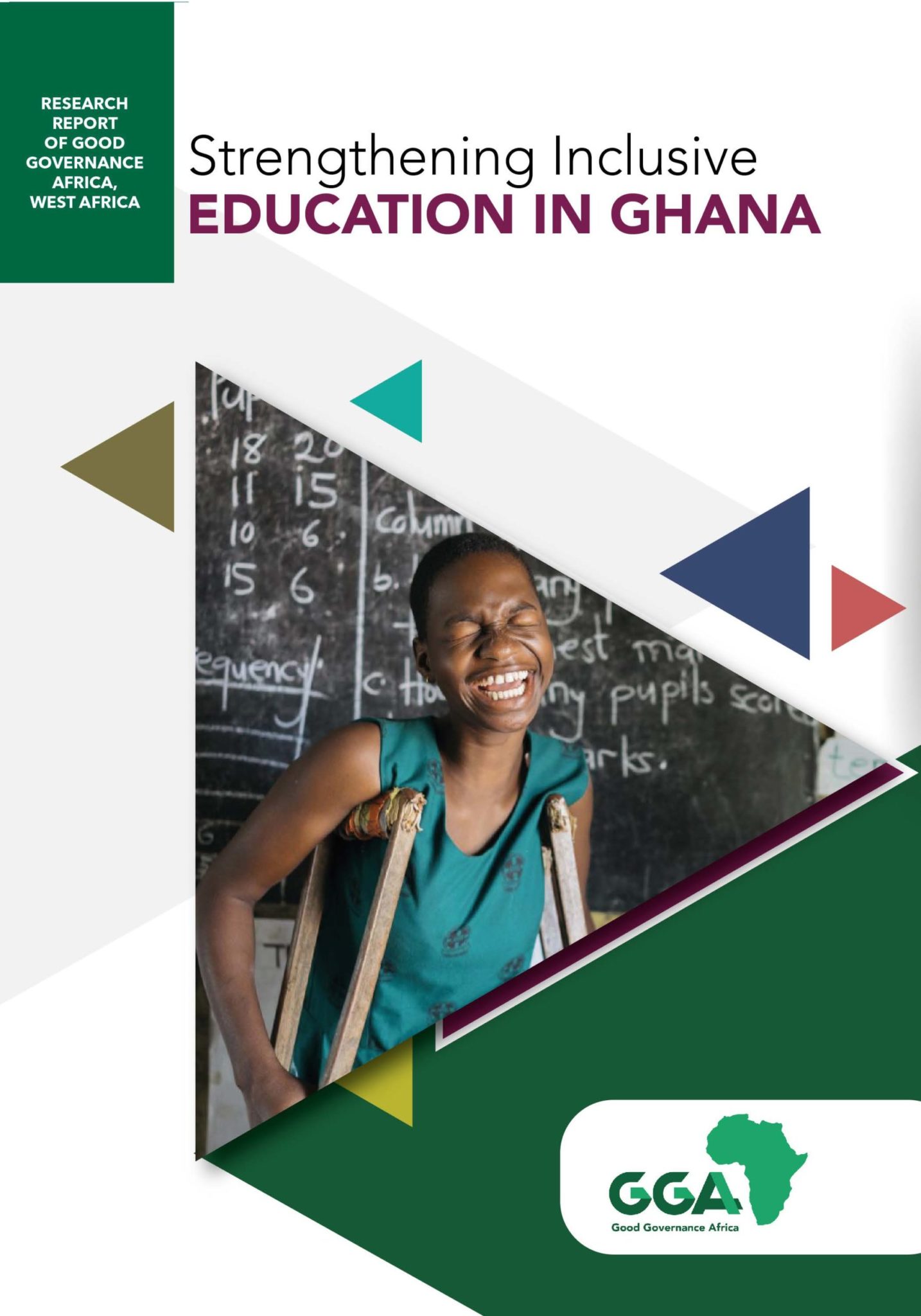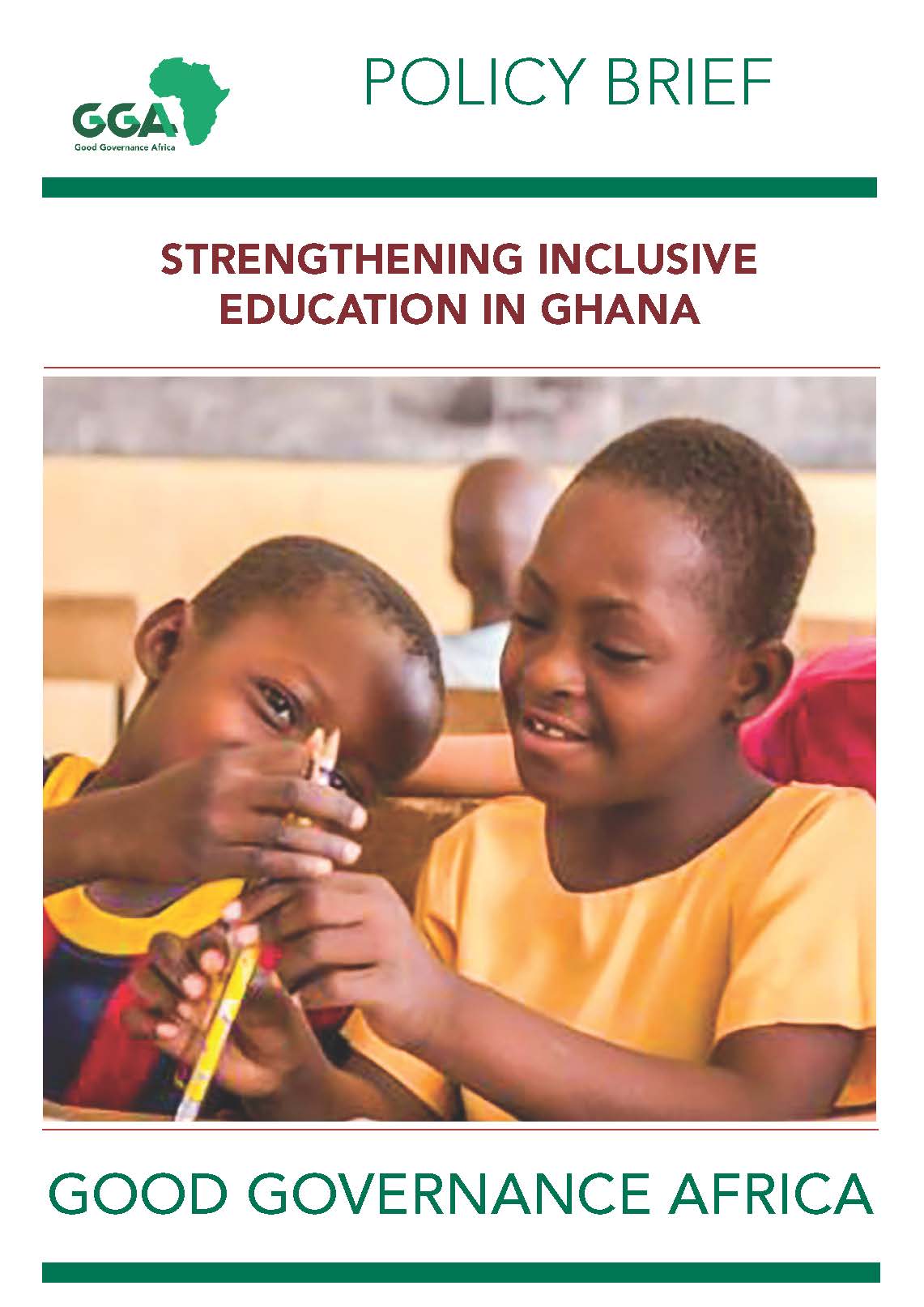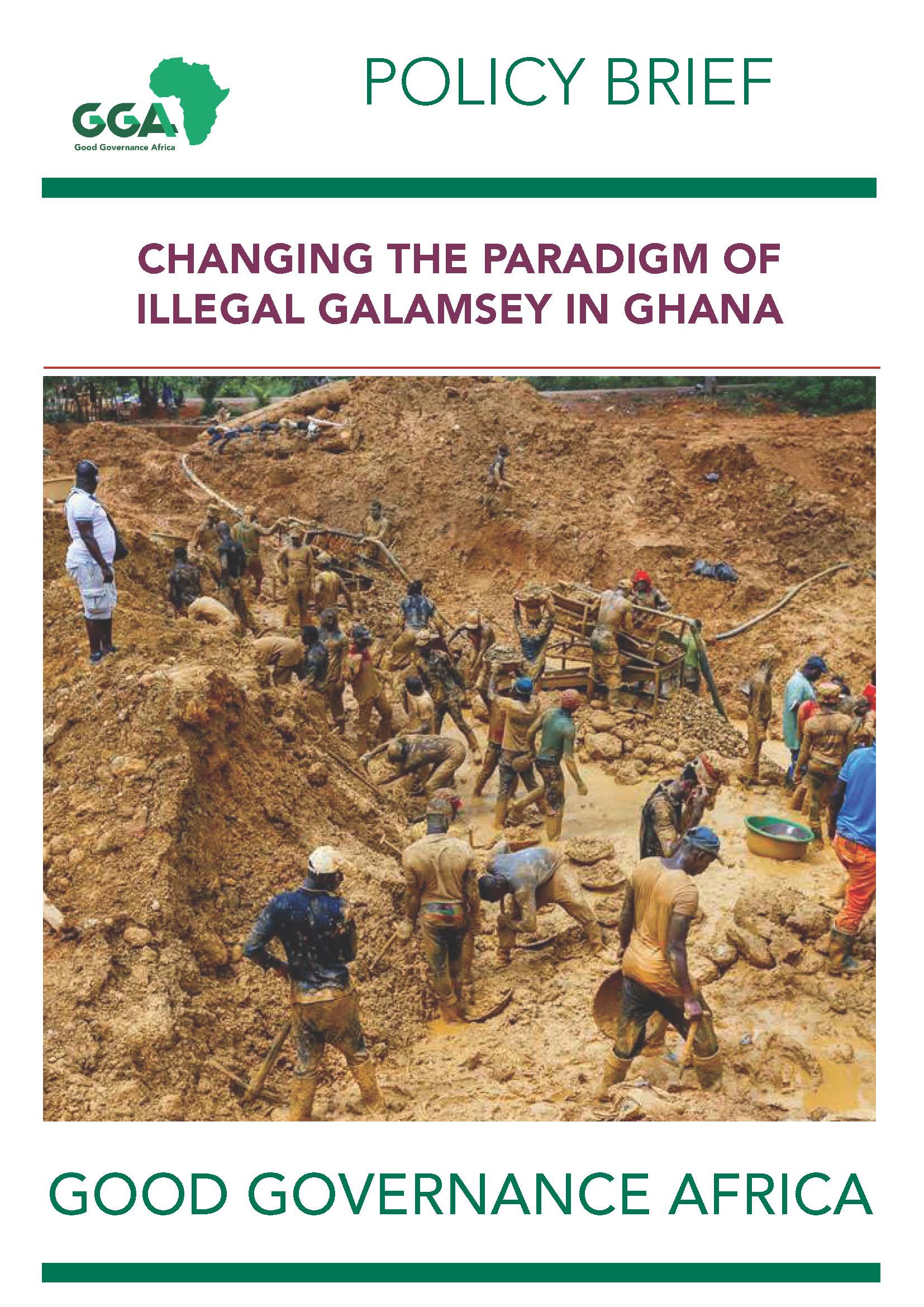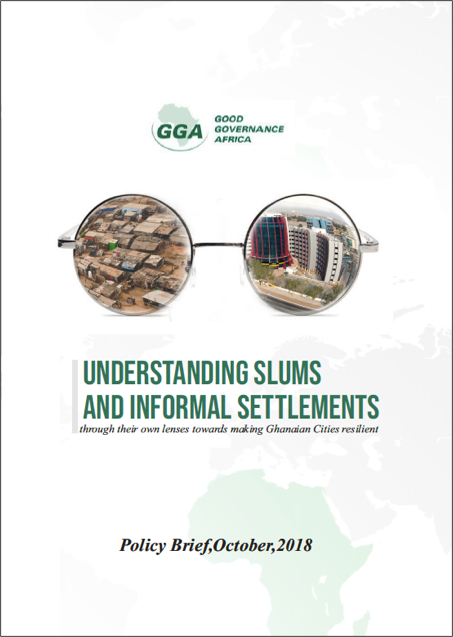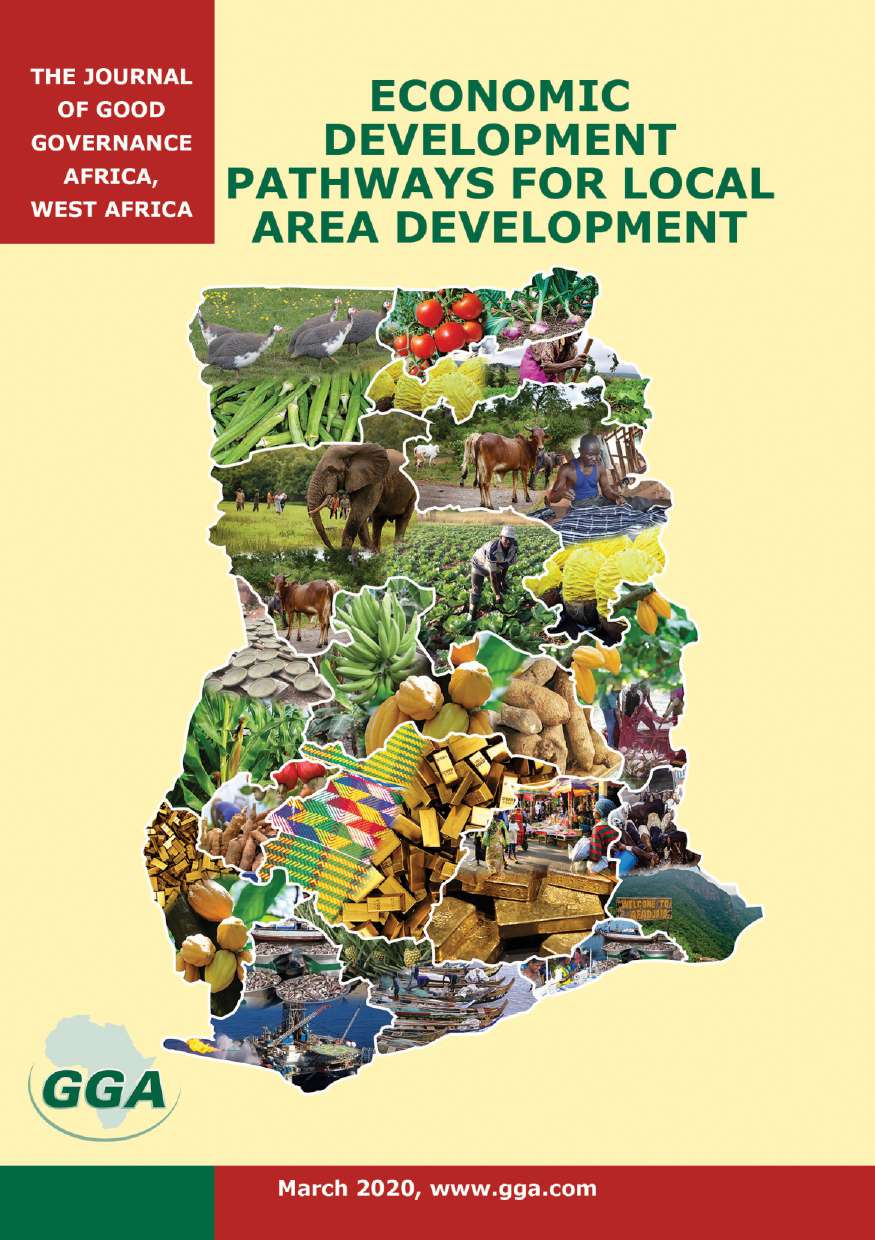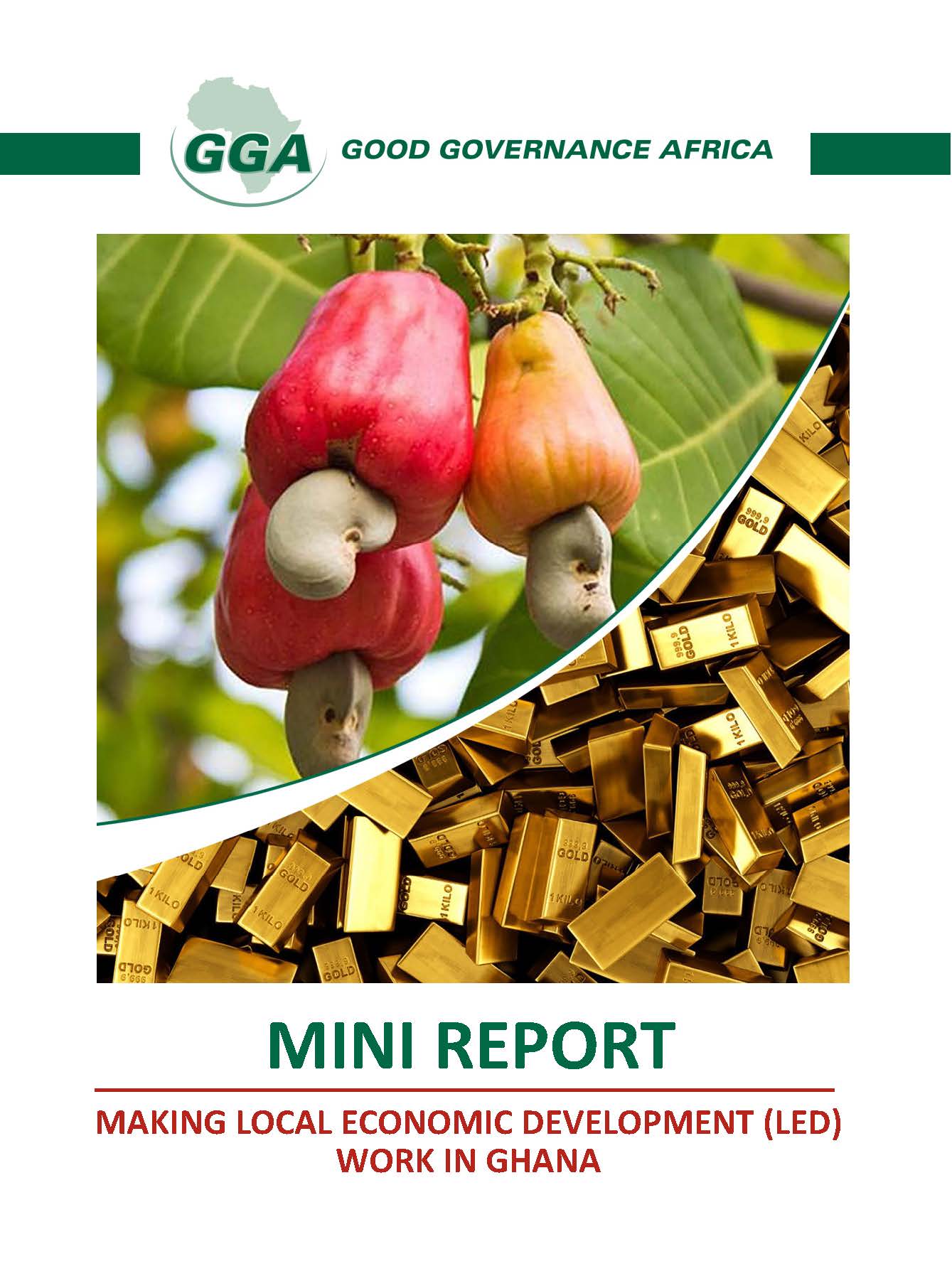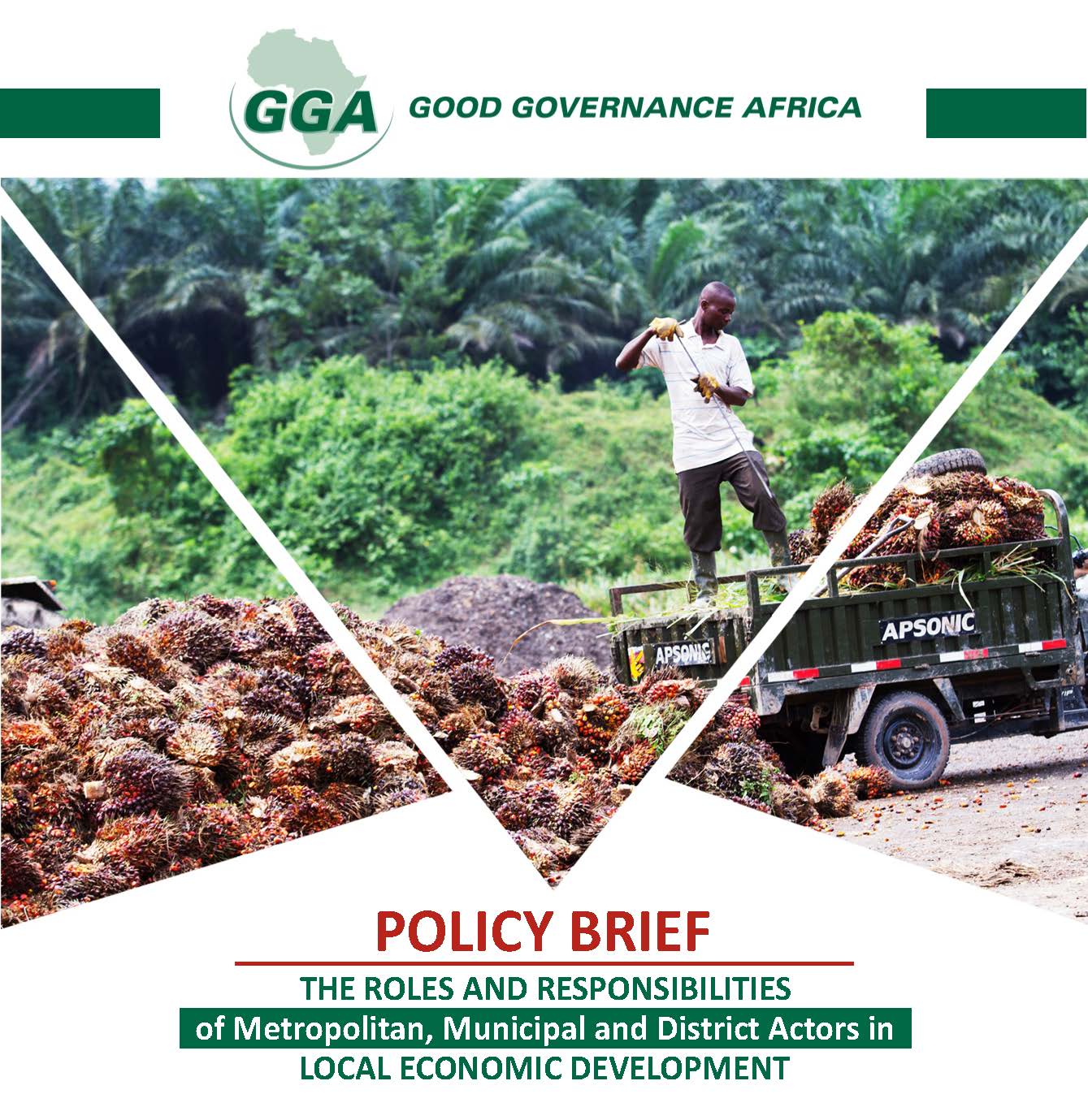
West Africa
Good Governance Africa - West Africa (GGA-WA) strongly believes that a democratic society with a proactive practice of transparency, accountability and the rule of law is on the right development pathway. GGA-WA, therefore, is deliberate in promoting these ideals in its programmes and activities across different sectors in Ghana and in other selected West African countries.Membership to organisations
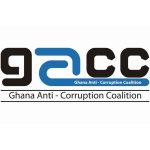
The Ghana Anti-Corruption Coalition (GACC)
As an executive member of this coalition, we partner other CSOs that seek to push for fair, open, transparent and accountable governance in all public and private spheres.
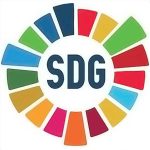
CSOs Platform for the Monitoring of the SDGs
As a member of this
platform, GGA-WA and selected
CSOs monitor and report
on the progress of various factors
in the implementation
of the SDGs.
Ghana Urbanisation Think Tank (GUTT)
Membership to the think tank, GUTT, which is facilitated by the Ministry of Local Government and Rural Development in collaboration with the Urban Management Institute, the Coalition of Urban Transition and the African Centre for Cities, enables us to assist in the deliberations on emerging urban developmental issues in Ghana.

The Ghana Anti-Corruption Coalition (GACC)
As an executive member of this coalition, we partner other CSOs that seek to push for fair, open, transparent and accountable governance in all public and private spheres.

CSOs Platform for the Monitoring of the SDGs
As a member of this platform, GGA-WA and selected CSOs monitor and report on the progress of various factors in the implementation of the SDGs.
Ghana Urbanisation Think Tank (GUTT)
Membership to the think tank, GUTT, which is facilitated by the Ministry of Local Government and Rural Development in collaboration with the Urban Management Institute, the Coalition of Urban Transition and the African Centre for Cities, enables us to assist in the deliberations on emerging urban developmental issues in Ghana.
Programmes
GGA-WA approaches delivering programmes through research, advocacy, training and publications, and has carefully analysed the developmental pathway of the four countries in which it is implementing its programmes and activities. The following key areas have been identified for its interventions:
Natural Resource Conservation, Protection and Utilization
The West African Sub-region is home to some of the world’s most valuable natural resources. The effective and sustainable management of these resources could propel the region’s development and help reduce poverty. Natural resources form the bedrock of development; socio-economically, culturally and communally, necessitating a focus on conserving, protecting and sustainably utilising these resources. The Regional Office puts particular emphasis on agriculture, mining, energy production and water consumption.
Programmes
GGA-WA approaches delivering programmes through research, advocacy, training and publications, and has carefully analysed the developmental pathway of the four countries in which it is implementing its programmes and activities. The following key areas have been identified for its interventions:

Natural Resource Conservation, Protection and Utilization
The West African Sub-region is home to some of the world’s most valuable natural resources. The effective and sustainable management of these resources could propel the region’s development and help reduce poverty. Natural resources form the bedrock of development; socio-economically, culturally and communally, necessitating a focus on conserving, protecting and sustainably utilising these resources. The Regional Office puts particular emphasis on agriculture, mining, energy production and water consumption.
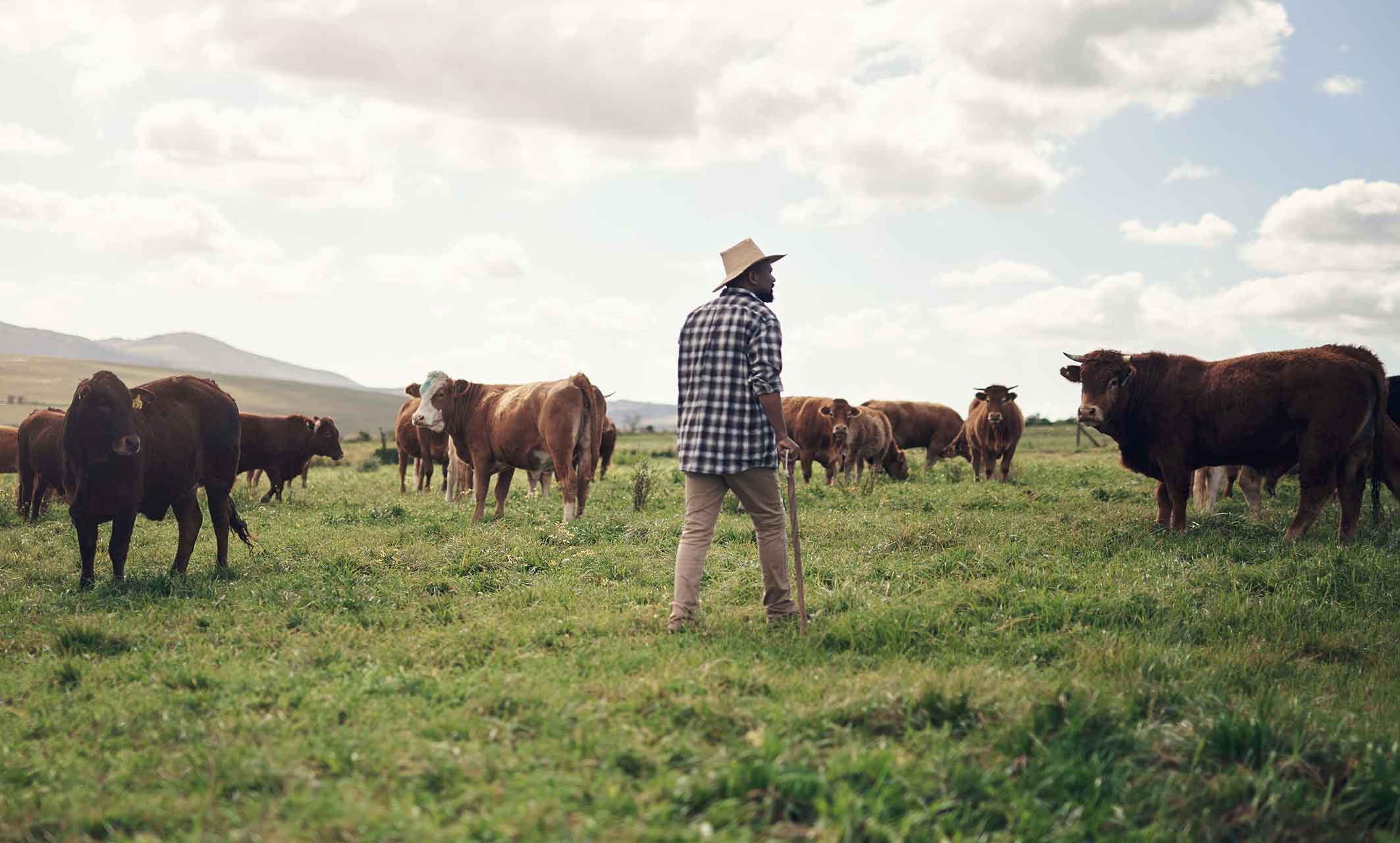
Peace and Security in the West African Sub-Region
New trends in regional insecurity such as terrorism and extremism; and increased levels of the effects of climate change represent threats to state and societal security. They pose great risks to human safety and survival, presenting an area that must be given considerable attention. The Regional Office focuses on reducing threats to human security by promoting rule of law, advocating stable governmental regimes and transitions, monitoring electoral processes and identifying climate responsible measures for action in Anglophone West Africa.
Trade, Regional and Local Governance
Governance performance across regional and local arenas is paramount for the well-being of citizenry. Strong public institutions and accountable governments invariably improve the situation of states as well as provide a stable background for trade and economic development. To contribute to the achievement of this thematic area, GGA-WARO provides capacity building for local governments and public institutions and facilitates discussions on West African intra and inter regional trade.
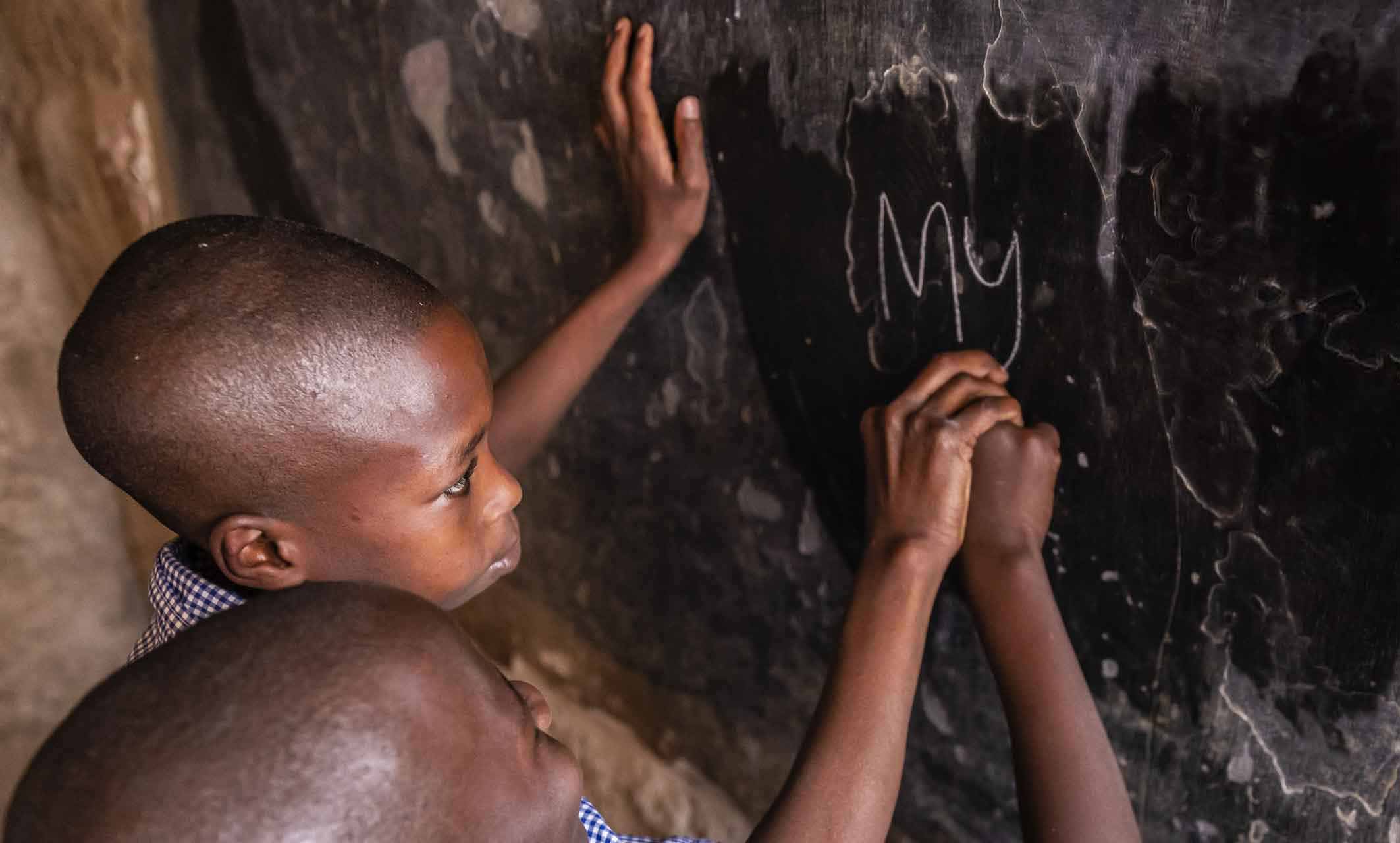
Trade, Regional and Local Governance
Governance performance across regional and local arenas is paramount for the well-being of citizenry. Strong public institutions and accountable governments invariably improve the situation of states as well as provide a stable background for trade and economic development. To contribute to the achievement of this thematic area, GGA-WARO provides capacity building for local governments and public institutions and facilitates discussions on West African intra and inter regional trade.
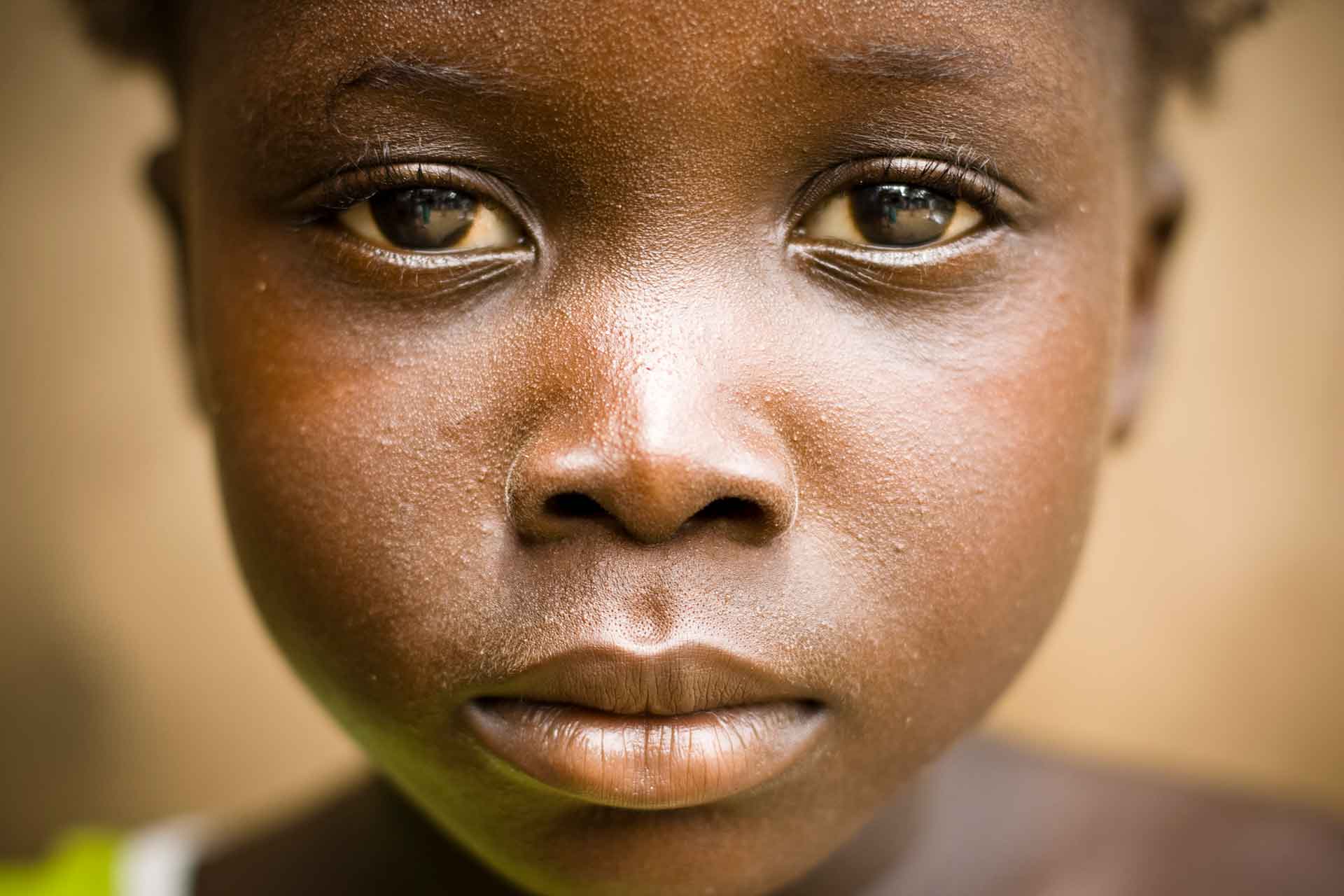
Accountable and Inclusive Governance
Transparent, effective and accountable institutions and respect for human rights provides access to justice, fosters equality and engenders trust among communities and people. GGA-WARO seeks to aid in creating a culture of integrity in service delivery and secure the participation and engagement of citizenry in the governance of jurisdictions in which they find themselves. The Regional Office encourages all citizens to participate in governance, most especially, people with disabilities, women, children and all minority groups.
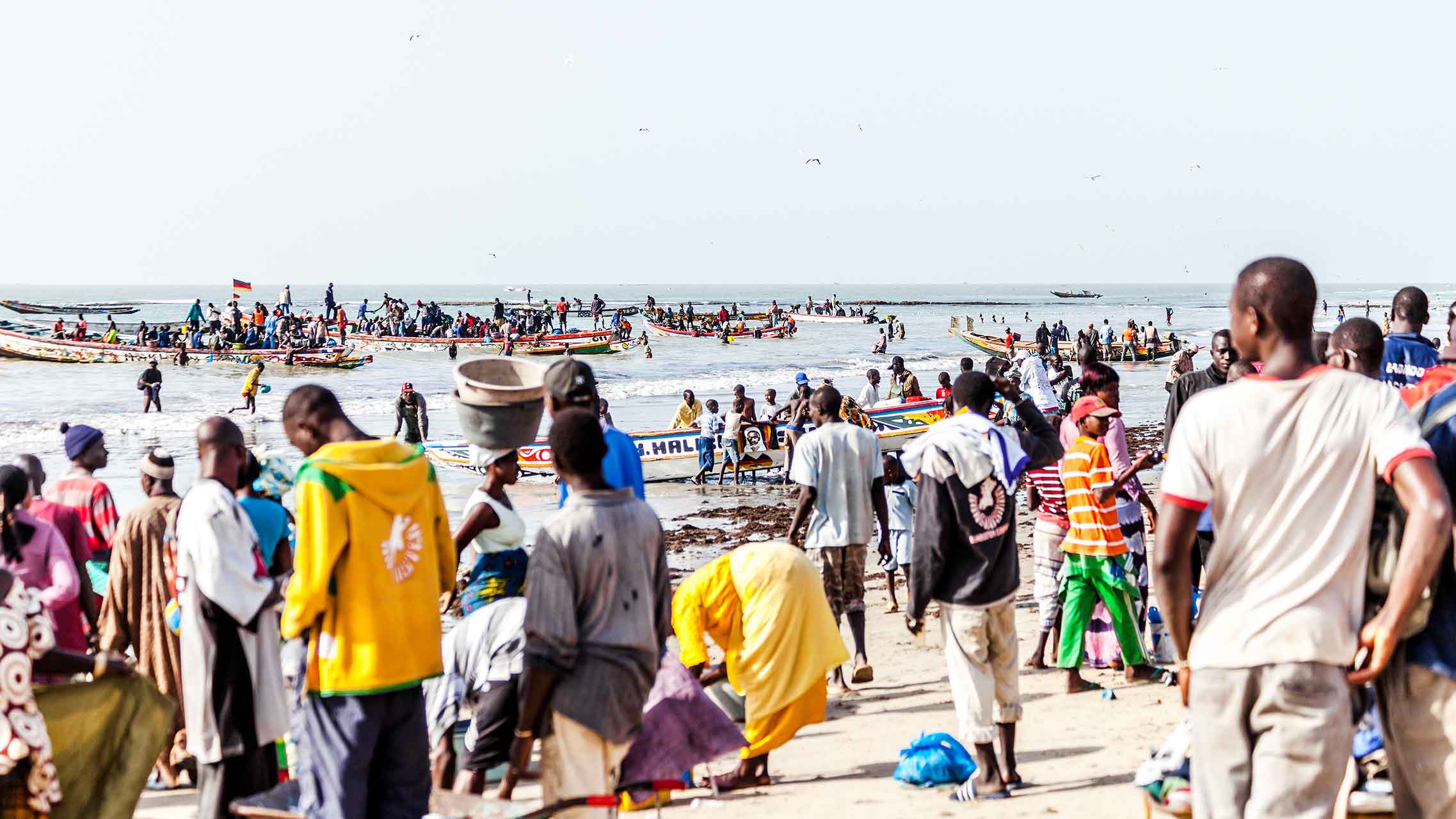
“Ending poverty and improving lives in a continent so rich in natural resources is highly possible if we systematically get leadership right, institutions to be effective and promote good governance practices across the board.” GGA-WA 2019
Our publications
Strengthening Inclusive Education in Ghana – Final Report
Strengthening Inclusive Education in Ghana Ghana’s education system is considered to be one of the most progressive in Africa. UNESCO Global Monitoring Report on Education for All lists Ghana as one...
Strengthening Inclusive Education in Ghana
Strengthening Inclusive Education in Ghana Ghana’s education system is considered to be one of the most progressive in Africa. In 2004 the government introduced free compulsory education for the...
Changing the Paradigm of Illegal Galamsey in Ghana
Changing the Paradigm of Illegal Galamsey in Ghana Small-scale mining activities in Ghana date back more than 2000 years, with evidence of gold mining as far back as the seventh and eighth...
Urban Poverty and our Collective Safety
Urban Poverty and our Collective Safety Slums and Informal Settlements in cities across Africa - The Ghana Case A publication by the Cities Alliance states that policymakers and leaders should see...
Economic Development Pathways for Local Area Development
Economic Development Pathways for Local Area Development Ghana currently has 260 districts under its local governance structure and these districts are to bring development closer to the people. The...
Making Local Economic Development (LED) work in Ghana
Making Local Economic Development (LED) work in Ghana Local Economic Development (LED) currently, has no unified definition and development practitioners, international institutions and researchers...
The roles and responsibilities of metropolitan, municipal and district actors in Local Economic Development
The roles and responsibilities of metropolitan, municipal and district actors in Local Economic Development Local governance has, since the 1990s, gained global importance in many developing...
News from the region
Quickly access all the latest news, articles and press releases from our centres operating in West Africa
GGA West Africa
[wp_team_list role=”gga-west-africa” orderby=”ID” order=”asc”]
GGA – WEST AFRICA
GGA – WEST AFRICA
Tel: +233 302 672925
Email: info.westafrica@gga.org
READ BETWEEN THE LINES
Sign-up to our newsletter to get the inside track on Africa
Local Economic Development
In recent years, a topical issue for most African countries has been the issue of unemployment, especially for the youth. The inability of African economies to generate the jobs needed to absorb the growing number of graduates from universities and other training institutions is a cause for concern. The phenomenon is growing to alarming proportions and even threatens security on the continent.
In Ghana, for instance, a group calling itself the Unemployed Graduate Association of Ghana (UGAG) sprung up in 2011 due to a persistent failure of the system to absorb graduates from the various higher level training institutions. This development is not unique to Ghana as other countries on the continent have suffered various forms of agitation due to unemployment. One example is the xenophobic attacks in South Africa due to claims by a section of the country’s youth that foreigners had taken their jobs.
Successive governments in Ghana have tried to nip this developmental challenge in the bud by creating some form of job opportunities through projects such as the Youth Employment Agency (YEA), Ghana Youth Employment and Entrepreneurial Agency (GYEEDA) and the Nation Builders Corps (NaBCo). All these initiatives, although lauded by a section of the population for providing relief for unemployed youth, are severely challenged in their ability to provide long-term sustainable jobs and remain short-term fixes.
In 2019 GGA-WA embarked on vigorous training sessions for local governance actors on ways to stimulate economic activities in their areas of jurisdiction. Through the promotion of democracy and decentralisation, power, functions and resources have been transferred to the local authorities (districts as they are called in Ghana) to develop their communities. Actors at the local level need to be trained and equipped with the tools they need to harness the economic potential of their regions. Thus, GGA-WA has undertaken two training sessions for carefully selected actors at the sessions for carefully selected actors at the district level:
April 2019 – Roles and responsibilities of MMDAs in local economic development for districts in the greater Accra region
July 2019 – training of local actors in the western region
GGA-WA also promotes local economic development through capacity building for smallholder farmers in Ghana.
“Agriculture is our wisest pursuit because it will in the end contribute most to real wealth, good morals and happiness”. Thomas Jefferson
Capacity building and training partnership between GGA-WA and B-BOVID
The partnership between B-Bovid, an agro processing and training company, and GGA-WA dates back to 2017. Together, the two institutions have trained several smallholder farmers, mainly in the oil palm plantation sub-sector, on best-farming practices to help them get value for their investment. Three successive years of offering technical assistance and refresher training for farmers in the western and central regions of Ghana under this partnership has seen farmers gain more from their existing farms.
The introduction of better seedlings and the adoption of mixed-crop cultivation on their farms has enabled these relatively poor subsistence farmers grow to become smallholder farmers with sustainable forms of income and livelihoods.
Going forward, the partnership will move into finding ways of modernising the farming activities of these smallholder farmers to reduce their workload and make the profession more attractive to the youth. Other, technological, organisations will be brought on board to introduce simple but efficient ways of collecting data on farms and managing the different aspects of farm operations.
BRIEF INTRODUCTION TO THE STUDY ON GHANA’S FISCAL DECENTRALISATION
By Edward T Sarpong
Decentralisation in Ghana is a well-accepted form of governance and has been in practice for more than three decades now. Successive governments have all taken critical decisions to further deepen the process of decentralisation over the years. The political, administrative and fiscal aspects of Ghana’s decentralisation process are being improved from time to time. More powers and leverage in governance have been transferred from the central government to local authorities across the country under the political decentralisation arm. The local authorities, formerly referred to as the district, municipal and metropolitan assemblies (MMDAs), are classified according to their size, population and level of services. They have received an enormous boost in the past decade in the transfer of qualified personnel to man the various departments at the local administrative offices under the administrative decentralisation arm of decentralisation.
Fiscal decentralisation, the third arm of the county’s decentralisation system, has also undeniably received considerable support and push over the years. Central government has continuously ensured the transfer of resources to the MMDAs, as enshrined in the 1992 Constitution of Ghana. Although the transfer system is faced with challenges such as delays, inadequate amounts, and certain central-level deductions, generally the system has been very supportive. Development partners (DPs) and other donors have also given technical and financial support to shore-up local funds for development. The MMDAs themselves have raised funds locally, though these have been very small and limited in scope. Nevertheless, all these support efforts are still considered as woefully inadequate and rightly so, because of the enormous developmental gaps that exist at the local level after years of neglect and limited interventions. There are several studies on fiscal decentralisation and the financial systems of local governments in Africa that have attempted to investigate and reveal the lapses in financial engineering by governments to address local development. However, these studies have been very technical, with critical analysis which may be difficult for certain levels of technocrats involved to assimilate in their attempts to implement fiscal reforms.
The GGA-WA centre commissioned a study into Ghana’s fiscal decentralisation to review the current systems put in place and how responsive or otherwise they have been. Particularly, the study adopts a qualitative approach to information gathering to enable actors within the fiscal decentralisation space to voice their experiences and observations of what works and what does not. The images attached are snapshots from the validation sessions on the draft study report.
Watch this space to read more from the Final Study report and its Policy Brief.
Early Childhood Education
GGA-WA’s intervention in early childhood education began in 2015. The centre resolved to concentrate its activities in the education sector at the first rung of the academic ladder as it is at that stage the potential lies to interest the child in academics.
The first childhood training intervention involved the piloting of a “child friendly model”, where the instructors were made to understand how the child’s brain worked and how to get the child interested in what was being taught. The environment within which the child was being engaged was also transformed to appeal to the children aesthetically and for better appreciation.
“A good teacher must be able to put himself in the place of those who find learning hard.” – Eliphas Levi
The model also focuses on the use of play to study the original teaching guidelines by the Ghana Education
Service in a much more effective way, using an easy to absorb approach for children. This has won praise from officials of Ghana’s education ministry.
To create a friendly learning atmosphere, the children are taught how to use waste materials to create learning objects. In effect, the children learn from an early age how to protect the environment by reusing waste in their community.
Communities that have benefited from this intervention thus far are: have benefited so far from this intervention are:
- Ekumfi in the central region
- Dodowa in the greater Accra region
- North Tongu in the Volta region
Civil Action for Accountability and Transparency
GGA-WA, under this thematic area, promotes promotes advocacy on varied topics of national interest. Depending on the issue at stake, the centre partners with other relevant stakeholder(s) to come together for dialogue and to make recommendations for addressing the issue at hand. The following are some of the events organised so far:
August 2015 – Workshop on fluctuations of the currency exchange rates and their impact on doing business in Ghana
November 2016 – Voter education and peace campaign forum
July 2017 – Small-scale mining formalisation in Ghana: Changing the paradigm of illegal mining (galamsey)
December 2017 – Symposium on the 2018 Budget Statement and Economic Policy of Ghana
“While transparency reduces corruption, good governance goes beyond transparency in achieving openness. Openness means involving stakeholders in the decision-making process. Transparency is the right to Information, while openness is the right to participation” – Narendra Modi

